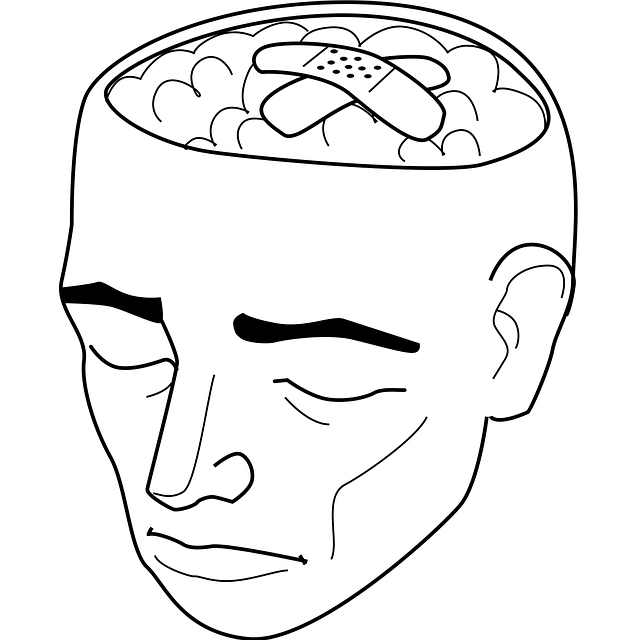Understanding mental health policy is crucial for creating a compassionate society that addresses systemic barriers. By adopting evidence-based practices like Lone Tree Acceptance and Commitment Therapy (ACT), we can promote prevention, early intervention, and long-term recovery. Comprehensive mental health education breaks down stigma, empowers individuals to seek help, and fosters inclusive communities with accessible resources. ACT in Lone Tree focuses on individual empowerment through acceptance, mindfulness, and values-driven action, transforming the mental health system to better serve residents' needs. Analyzing existing systems identifies areas of improvement, such as limited access to specialized therapies, guiding advocacy for policy changes that include self-care routines, coaching programs, and cultural competency training. A holistic approach combining evidence-based practices with community engagement is key to effective policy analysis and advocacy.
Mental health policy analysis and advocacy are essential components of creating a supportive societal structure for mental well-being. This article explores these aspects through a comprehensive lens, beginning with understanding the foundational principles of mental health policy. We delve into innovative approaches like Acceptance and Commitment Therapy (ACT), highlighting its role in policy advocacy.
Additionally, it examines existing mental health systems, identifies gaps, and offers strategic insights for effective analysis and advocacy, emphasizing the potential of Lone Tree Acceptance and Commitment Therapy as a game-changer.
- Understanding Mental Health Policy: A Foundation for Change
- The Role of Acceptance and Commitment Therapy (ACT) in Policy Advocacy
- Analyzing Existing Mental Health Systems and Identifying Gaps
- Strategies for Effective Mental Health Policy Analysis and Advocacy
Understanding Mental Health Policy: A Foundation for Change

Understanding Mental health policy is akin to illuminating a path toward a more compassionate and supportive society. It involves recognizing the intricate interplay between societal structures, systemic barriers, and their profound impact on individual mental well-being. By examining existing policies and advocating for evidence-based practices, such as those offered by Lone Tree Acceptance and Commitment Therapy (ACT), we can foster an environment that prioritizes prevention, early intervention, and long-term recovery.
This foundation of policy understanding is crucial for addressing the pervasive Mental Illness Stigma Reduction Efforts. Well-designed programs focused on Mental Health Education can empower individuals to recognize their own mental health needs and encourage help-seeking behaviors. Moreover, these initiatives contribute to breaking down societal barriers and promoting inclusive communities where everyone has access to resources like Self-Care Routine Development for Better Mental Health, ultimately paving the way for a healthier and more resilient society.
The Role of Acceptance and Commitment Therapy (ACT) in Policy Advocacy

Acceptance and Commitment Therapy (ACT) has emerged as a powerful tool for mental health policy advocacy, offering unique insights into empowering individuals to take control of their well-being. This therapeutic approach emphasizes the importance of acceptance, mindfulness, and commitment to values-driven actions, which can significantly impact policy discussions. By fostering self-acceptance and promoting behaviors that align with personal values, ACT encourages individuals to navigate life’s challenges with resilience.
In the context of policy advocacy, ACT’s emphasis on empathy building strategies and conflict resolution techniques is invaluable. It enables advocates to approach mental health discussions with a deeper understanding and compassion, addressing systemic barriers with more effective solutions. Moreover, by focusing on self-esteem improvement and encouraging individuals to set meaningful goals, ACT empowers them to actively participate in shaping policies that reflect their needs, fostering a more inclusive and responsive mental health landscape, especially in the Lone Tree community.
Analyzing Existing Mental Health Systems and Identifying Gaps

Analyzing existing mental health systems is a crucial step in understanding where improvements can be made. This process involves a comprehensive review of current policies, services, and resources available to support individuals’ mental wellness. By examining these structures, advocates can identify gaps that hinder access to effective treatment, such as limited availability of specialized therapies like Lone Tree Acceptance and Commitment Therapy (ACT). For instance, rural areas often struggle with a shortage of mental health professionals, which can be addressed through innovative solutions like telemedicine.
Identifying these disparities is essential for shaping advocacy strategies that push for policy changes. It may include recommendations for enhancing Self-Care Routine Development for Better Mental Health, implementing Mental Wellness Coaching Programs, and ensuring Healthcare Provider Cultural Competency Training to cater to diverse populations effectively. This holistic approach ensures that mental health services are inclusive, accessible, and tailored to meet the unique needs of individuals seeking support.
Strategies for Effective Mental Health Policy Analysis and Advocacy

Effective mental health policy analysis and advocacy require a multifaceted approach that incorporates evidence-based practices and community engagement. One powerful strategy is to utilize acceptance and commitment therapy (ACT), such as Lone Tree Acceptance and Commitment Therapy, which fosters resilience and promotes well-being by encouraging individuals to accept their emotions and commit to valued actions. This therapeutic approach can inform policy design by emphasizing the importance of self-awareness exercises and emotional intelligence—key components in mental health education programs.
Advocates should also focus on community outreach and education to dispel stigma associated with mental health issues. By implementing Mental Health Education Programs Design tailored to diverse populations, individuals can gain a better understanding of their emotional responses and develop effective coping mechanisms. Incorporating Self-Awareness Exercises within these programs enables participants to cultivate mindfulness, fostering a sense of agency and empowering them to actively engage in their mental health journey.
Mental health policy analysis and advocacy are vital components of creating a supportive ecosystem for overall well-being. By understanding the intricacies of mental health systems and utilizing evidence-based approaches like Acceptance and Commitment Therapy (ACT), we can identify gaps and drive change. The strategies outlined in this article, including comprehensive analysis and effective advocacy, empower individuals and communities to navigate the complex landscape of mental healthcare. Embracing these methods, such as those practiced at Lone Tree Acceptance and Commitment Therapy, can lead to a more inclusive and responsive mental health policy environment.














